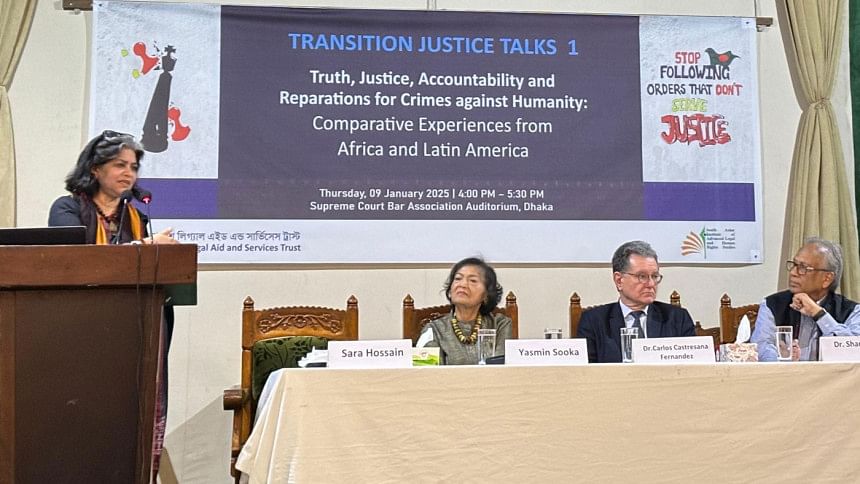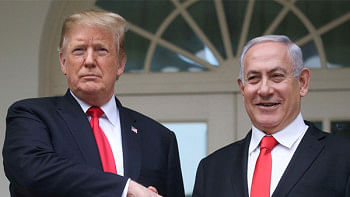BLAST organises 1st Talk on Transition Justice

On Thursday 9 January Bangladesh Legal Aid and Services Trust (BLAST) organised the first instalment of 'Transition Justice Talks' at the Supreme Court Bar Association Auditorium, Dhaka. The event was chaired by Dr. Shamsul Bari, Vice-Chairman, Board of Trustee, BLAST, and moderated by Barrister Sara Hossain, Honorary Executive Director, BLAST and Senior Advocate, Supreme Court of Bangladesh.
This session of the talks was titled 'Truth, Justice, Accountability and Reparations for Crimes against Humanity: Comparative Experiences from Africa and Latin America.' Yasmin Sooka and Dr. Carlos Castresana Fernández were invited as panel discussants, both having valuable experience in the field of transitional justice. The event was inaugurated with the opening remarks by Barrister Sara Hossain contextualising the question of transitional justice in Bangladesh.
Yasmin Sooka, who is serving as the Chair, UN Commission on Human Rights in South Sudan, and Executive Director, International Truth and Justice Project Sri Lanka, began the panel discussion pointing out that law can be used as a tool even in the difficult times. Reliving the South African experience, she addressed the hard questions that need to be answered for every society going through a transitional period. She suggests a pragmatic approach be taken to deal with past atrocities. Besides the victim's inalienable right to truth, justice, reparation and the guarantee of non-recurrence, she points towards memory and memorialization as the fifth pillar of transitional justice. She emphasised that no reconciliation is possible without ensuring justice to the victims.
Dr. Carlos Castresana Fernández, who also serves in the UN Commission on Human Rights in South Sudan as a Commissioner, and an Advisor to Special Jurisdiction for Peace in Colombia, concentrated his discussion on the right to justice of the victims. The goal, in his words, is to cross the bridge from conflict to coexistence. He points out that transitional justice may not bring all perpetrators to book, but it can bring back the rule of law and stop corruption. Using Chile as an example, he portrays how transitional justice may create a turning point for a nation. He also discusses the possibility of prosecuting international criminals internationally, especially where judiciary is a part of the problem.
At the end of the panel discussion, a short question answer session was held, followed by the concluding remarks of the honourable Chair of the event.
Event covered by Khalid Khan, Intern, Law Desk.

 For all latest news, follow The Daily Star's Google News channel.
For all latest news, follow The Daily Star's Google News channel. 



Comments